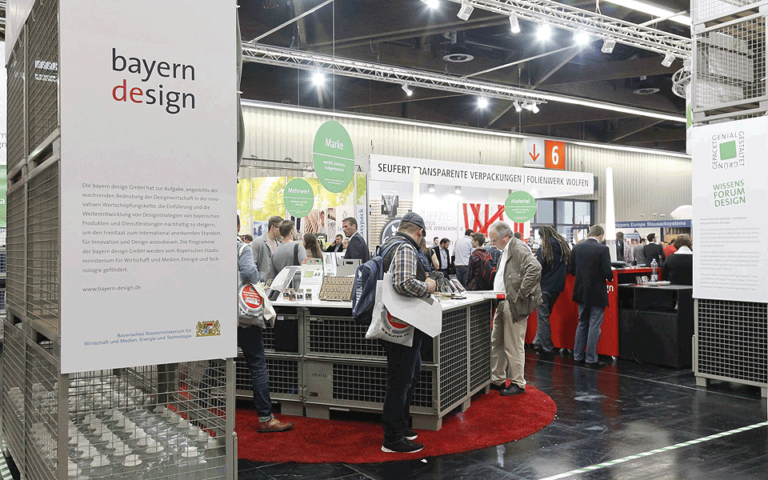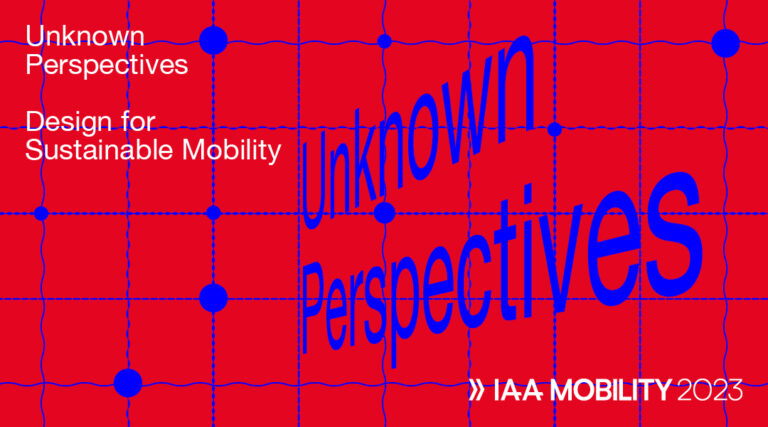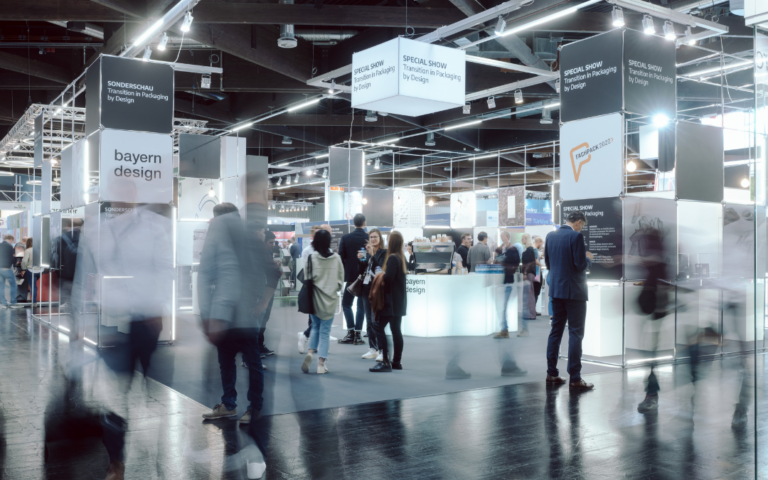Mix it up! special design exhibition at BrauBeviale trade fair
Press Release
- BrauBeviale, the trade fair for the beverage industry: November 28 to 30, 2023 in Nuremberg
- Selected design incentives for the industry at Mix it up! organized by bayern design and trade fair company YONTEX in Hall 4A-133
- Designwalks to trade fair highlights on November 28 and 29
- Brief Designtalks at Forum on exhibition topics on November 28
Nuremberg, Germany – The Mix it up! special design exhibition will be part of the BrauBeviale trade fair for the beverage industry. Designed in cooperation with YONTEX and curated by bayern design, the center of competence for knowledge transfer, knowledge sharing, and alliances about design in Bavaria, Mix it up! has been structured into three categories – Conversation, Evolution, and Celebration. Each category will feature design concepts that will provide new impetus within the beverage industry. Guided Designwalks across the fairgrounds and Designtalks held at the Forum will complement the joint exhibition.
Why this focus? Every design process dovetails a number of parameters but it takes a targeted combination of them to build the specific playful, empathic, and emotional concepts that create ties with the users of the products and services. Also, design is about the optimal interplay of functionality, aesthetics, and sustainability, as well as the attitude behind it – all of which can be transferred to design in original and creative ways. The result is a varied mix of these parameters represented individually by the exhibits.
Mix it up! special design exhibition
The three categories in the exhibition – Conversation, Evolution, and Celebration – will illustrate the diverse objectives pursued by each individual mix.
Conversation
Good design is more than just aesthetics; it initiates conversation. Good design is a powerful tool to unite cultures, companies, and consumers. To do so, the exhibits in this category focus on stances and messages and use effective brand strategies, communications design, and innovative systems or processes. Whiskey manufacturers, for example, often opt for tartan, bagpipes, and heather in their communications materials. In contrast, Carla Palette and her team, inventors of BUNA, visually position boutique whiskey and whiskey sour cocktails in ways that defy what is known and expected. DJUCE also goes against the grain of customary packaging: Top-caliber wines are packaged in specially designed and infinitely reusable 250 ml aluminum cans.
In addition to pieces by Lukas Diemling of Graz, Austria, who designs labels reminiscent of the movie Matrix, the Conversation category also includes Barcelona-based design studio La Casa de Carlota that takes inclusion seriously, and büro bungalow of Würzburg/Berlin, Germany, whose team has transferred the concept of circularity to the design of labels and the logo for Dominik Held’s vintage wines.
Evolution
The Evolution category will pick up on design innovations with the potential to revolutionize the market because they keep in mind the entire lifecycles of products. For example, Weingut Alois Lageder of Alto Adige, Italy, vintners and producers of the SUMMA bottle weighing only 420 g, decided to waive patenting their innovation to facilitate its distribution and managed to reduce their own glass consumption by 22%.
In turn, Vetropack has developed a pool solution for lightweight glass bottles and will make its 0.33 l reusable product available to the entire brewing industry. With its RE:INCARNATED SPIRITS made of yeast from sparkling wine production, design studio Ruska Martín will present a completely circular design experience: paper made from grape waste, glass that has been recycled, reused champagne corks, small self-adhesive labels, and box padding made from unusable banknotes – Ruska Martín’s tongue-in-cheek comment on the current economic situation. The beauty of circularity is transformed into a sensual experience.
For sparkling wine, Martin Appoldt of g.a.s. unternehmenskommunikation in Fürth, Germany, developed packaging that features an integrated cooling container made of cardboard. The two-piece box offers optimal co-branding opportunities at the point of sale and at the table.
Leonhard KURZ, the Fürth-based expert in finishing processes, is a co-contributor to the Make a Mark™ platform, an exclusive innovation project. The exhibition will introduce five inspiring designs that leveraged the platform’s creative freedom to take a journey of discovery in a playful and colorful manner – excellent storytelling included.
Knärzje, a beer brewed from stale bread which addresses food waste, and Outlander, an alternative plastic material made from brewery waste also will be part of the Evolution category.
Celebration
The Celebration category will present creative and innovative approaches developed by designers and beverage producers who celebrate their products, their culture, and their customers in a way that emphasizes their identity.
At Quartiermeister, a common-good certified beer brand and social business, the online community gets to decide what proceeds go toward what social projects. The bottle labels feature the faces of real-life activists, giving the brand its distinctive identity.
Community also is at the heart of MetaBrewSociety, a brewery located in Naila in the Bavarian region of Upper Franconia. The company’s purchase was financed through NFT, that is, digital beer vouchers. MetaBrewSociety’s canned light beer is sold to a loyal NFT community in more than 40 countries – exemplary of the smart use of service design in the beverage industry. The labels on the Sisters in Wine bottles in the packs offered by Weingut Bernhard highlight the company’s commitment to women’s rights and gender equality and are designed with female diversity and solidarity in mind. A percentage of the sales proceeds is allotted to not-for-profit organizations. Manufaktur Jörg Geiger uses classic design for its orchard fruit specialties in the GRAD°WANDERUNG line to draw attention to local varieties and refines de-alcoholized grape wines with fruit from its own meadows.
Inspirational lectures at the Forum
During the first afternoon of the trade fair, selected exhibitors will offer brief, inspirational lectures at the Forum on the fairgrounds and will delve deeper into the topics of the special exhibition:
Daniel Anthes of Knärzje will illustrate ways to connect appreciation for food with sustainable value creation. Chantalle Alberstadt will discuss how design, brand, and community influence and drive each other at the Web3 brewery MetaBrewSociety. Kathrin Kinne of Weingut Bernhard will reveal how the Sisters in Wine series combines indulgence with charity.
Designwalk to trade fair highlights
Hosted by bayern design and Pacoon and guided by Peter Désilets, Managing Director of Pacoon GmbH, for two days Designwalk visitors will be led to sample exhibits. Highlights of these tours, which will start at 3:30 p.m. on November 28 and at 11:00 a.m. on November 29, include the booths of NOMOQ, Schoeller Allibert, Verallia, and Vetropack. bayern design’s Mix it up! special design exhibition will mark the starting point and the conclusion of Designwalk.




